Can a philosopher become a great filmmaker? The case of Terrence Malick
Back to 17 ...
I started writing film scripts at the age of 17 in Maracay, the city where I grew up. The screenplays were written for a film group we created, and who worked in the Super-8 format. Of course, at that age you can write only bad scripts, fools, but we wanted to take the sky by assault, or, at least, the movie theaters.
Fortunately, our city had an Athenaeum, with its own cinema dedicated to artistic and experimental movies, where we could see absolutely everything: Fellini, Antonioni, Kurosawa, Wajda, Tarkovsky, Woody Allen, Bergman, Kubrick, Coppola. To see blockbusters with pop corn and Coca Cola (Shark, Earthquake, i.e.), there were several other cinemas, so that we had not lack of any kind of movies.
Not being able to take the commercial cinemas by assault because the Super-8 format was a booby trap designed for provincials kids like us, we settled for trying to take by assault the Maracay Athenaeum experimental cinema with our grotesque short films.
And our friends in the cinema were so generous that they allowed us to project them for an audience accustomed to seeing Fellini 8½, Andrei Rubliov, The Seventh Seal, Manhattan, The Man of Marble or Kagemusha.
I have never met in my life a public as cultured and demanding as the one in that cinema of the Maracay Athenaeum. They turned to shit our films and scripts , and I'll thank them for the rest of my life.
Had it not been for them, I would have believed myself a true filmmaker, and my stupid scripts could have been filmed the screen, to the ruin of the producers (in this case the State) and mine.
If it were not for them, I would not have studied philosophy. Yes, because I studied philosophy to not write more stupid scripts. And thanks to them, to my beloved audience in Maracay, thanks to the friends who read my scripts with ferocity and mocked me fondly with a beer in between, I tell you: I would have really believed that my scripts were good, and it would not have landed to the reality that they were a hazing, fruit of the arrogance and ambition of a small town boy without training.
Among professional philosophers

So I studied philosophy with the Jesuits in the UCAB in Caracas, which also did not guarantee that I would become a good scriptwriter, but at least I was aware that I was not, and I tried to remedy it with the means available to me, a lot of movies, many series, many books, lots of music, dedication and patience.
40 years after starting that adventure as a screenwriter, that journey of the hero that is my life, and that in general is the life of any of us, I wonder when reviewing Terrence Malick's cinematography: Can you philosophize in the cinema, through the cinema, with the cinema? Can a philosopher-filmmaker use images as a language to issue messages of philosophical rank?
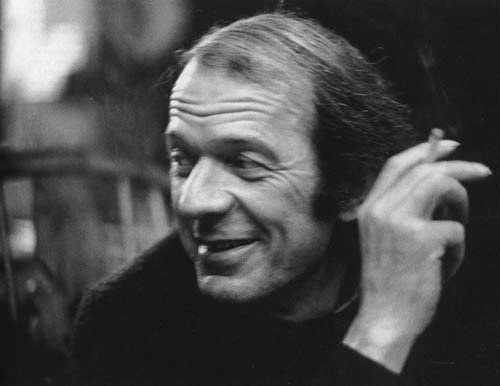
Let's see if I explain myself better: there are philosophers who have talked about cinema, like Gilles Deleuzein The Motion Image, and also in The Time Image. But it is the analysis of a philosopher from the outside, and its value is questionable. The filmmakers do not care what Deleuze says, but he has the right to try to impress his fellow philosophers (who have never written a one-minute script), with the sternness that his essays manage to decipher all the magic and the fascination that images in movement and with sound have generated for more than 100 years.
On the other hand, there are filmmakers who have inspired or propped up their work on philosophical bases very conscious and explicit in their reflections: let's say, Einsenstein, in his classic book Notes of a Director, makes it clear that he understands cinema as a tool to educate to the people, and he cites Aristotle as his reference, without forgetting Marx, since we must not forget that in 1919 Lenin's government commissioned him the film program of the revolution.
Here there is no incongruity: Marx was totally Aristotelian, and Einsenstein fulfilled the commission with ideological purity and, what is more important for us, with a colossal work that laid the foundations of film montage as we know it today. If you want to make movies, write scripts, or just be a film critic, you have to see all Einsentein's work.
Let's go back to the case in question. What does not happen frequently is that a filmmaker philosophizes through images. That his montage, his aesthetics, his visual dramaturgy (I owe this term to the brilliant Andrei Tarkovsky), produce enlightenment and reflections with rank and philosophical degree.
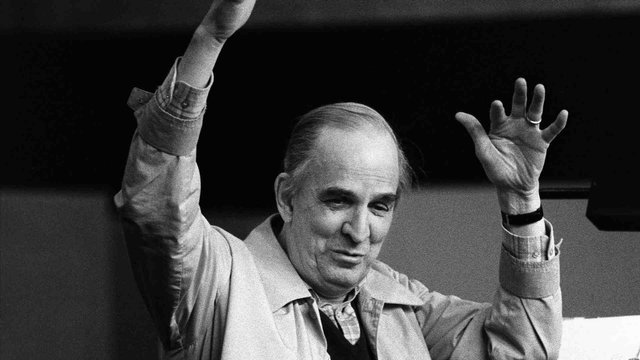
It could happen with Ingmar Bergman, a theater man with a very elevated sense of aesthetic and reflection, that one could see an existential treatise the kind of Sartre or a Kierkegaard books when we see "Persona."
It can happen with some scenes of Tarkovsky, for example, the house that burns in The Sacrifice or the dream sequences of The Mirror, that a recondite knowledge, of philosophical but ineffable degree, impossible to translate into words, enlighten us. It is a subject that would really be worth investigating, but I leave it to the theoretical philosophers, I now write comedies and dramas, not essays (this is an exception).
A take of The Sacrifice by Andrei Tarkovsky
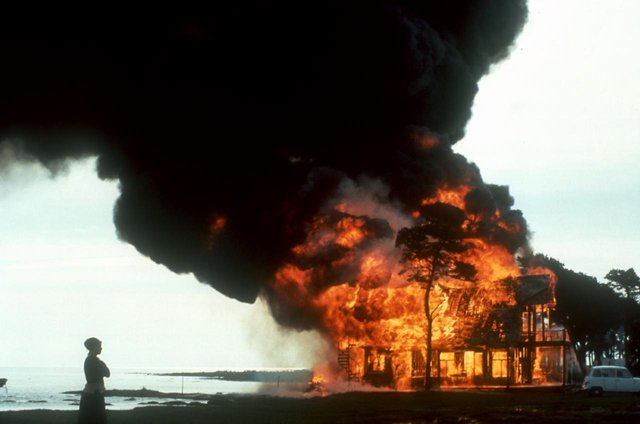
The philosopher Malick
Terrence Malick is the third case, the most infrequent and fortunate: he is a philosopher and also a filmmaker.
Additionally, you do not have to be a genius to realize that Malick (like almost every filmmaker who aspires to transcendence) is an admirer of Andrei Tarkovsky, so after his successful Bad Lands, he has not hesitated to imitate the Soviet's master's attempts to achieve an aesthetic and philosophical language for the cinema, a visual dramaturgy that achieves the same cathartic and illuminating effect that would produce in us, for example, to read The Confessions of St. Augustine.
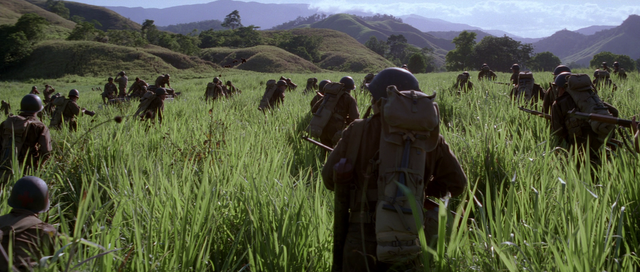
A take of The Thin Red Line
Seeing the following works of Malick: The Thin Red Line, The New World, The Tree of Life, To The Wonder or Knight of Cups, we immediately perceive that there is something more, beyond the history, the takes, the cinematography as techné, as technique and skill, a something beneath that speaks to us, not with words, but with a different knowledge, perhaps pure aesthetic, perhaps metalinguistic, meta-philosophical, that we can not reduce to words.
That must be one of the reasons why Malick's films, so strange, so oblique, are acclaimed by critics, are cultured by students and fellow filmmakers, and, what is more amazing, that Hollywood continues to invest in those films you know in advance that you are not going to make any profit at the box office.
How is it done to philosophize in the cinema? I do not know, it's a very complex question, and don't forget that I started studying philosophy to answer that question, and also so that my scripts were not as stupid as 40 years ago.
I do not think it's as obvious as the anecdotes, scripts, stories, and their extra-film, moral, political, and philosophical evaluations in the sense of the written books and the academy.
I think that the moment Tarkovsky or Malick break the linearity of the stories, the internal mechanics of chained and precise cause and effect that is the paradigm of Hollywood, they generate an oblique, alternating narrative from which philosophical sparks emerge.
Beware that breaking the cause-effect linearity of film stories is not enough. Every petulant French filmmaker is capable of doing that, without the talent of his predecessors Chabrol or Jean Luc-Godard, fathers and teachers of the Nouvelle Vague. Come on! And we did it when we filmed in Super-8, but simply because we did not know that logic, we did not know how to handle it and structure it in our scripts! It is a very Latin American ill, ignorance disguised as vanguardism and rupture. Illiterate arrogance.

Let's not lose the thread. It can be narrated in another way, not only through the journey of the hero, the script of 5 turning points by Syd Field the precise internal clockwork mechanics proposed by Bobby McKee or the 15 moments of Black Snyder.
Of course you can, and you run the risk that, with these tools, a little talent, a lot of discipline and a good agent, you end up selling your scripts for a handful of dollars.
But all of us who have written a film script, all of us who have dreamed awake inside the dark room of a cinema, at some point we have aspired to transcendence.
Philosophers are interested in cinema, and from philosophy they approach it, they want to deconstruct it and many times, in a perverse way, they want to regulate it with categories external to the cinema itself.
Some filmmakers want to be philosophers, write naive essays, read two or three books of philosophy, and always try to justify their films with references to categories, content, schools, authors and philosophical books, in the sense of academic philosophy, it is to say, with Sartre, with Kierkegaard (Bergman) or with Aristotle and Marx (Einsenstein).
The third case, that of the true filmmaker philosopher (Malick is a Harvard graduated one), the result can be amazing, as in the films of this peculiar American director.
If you're going to see a Terrence Malick movie, forget about everything I've told you in the 14 posts about The Hero's Journey, or maybe not ... Maybe the Hero's Journey does exist in Malick, but with such subtlety that it can not be translated into words, and even this article is already distorting it, contaminating it, for which it would be good to end it.
I apologize to my readers if this post came out to me cryptic, but I can not avoid it. Last night I finally saw To The Wonder complete, and I could not avoid to relive my two loves, cinema and philosophy.
Watch Malick's films without prejudice, without recipes, without analyzing them, let yourself be carried away by music, by the extraordinary photography of Emmanuel Lubetzky, by the soundtrack, by the delicate movement of the actors, by their eyes, by the light that filter between the trees ... At a given moment, you will receive a flash, an illumination, as when we contemplate one of those pictures in 3D that at first glance look like a lot of spots, but if you fix your gaze as it should be, then it jumps towards you a three-dimensional image that had always been there, waiting for your surrender, your abandonment, to suddenly take by assault your senses, your soul, a bit like this post claims.
There is no other way to write about Malick's cinema. And there is no literary or critical experience that can replace the vision of his works, which you love or hate immediately, without mediation.
And enough for today, let's rest the keyboard, and lets see another Malick movie; Knight of Cups.
Óscar Reyes-Matute
(Samuel Ibn Motot / שמואל אבן מתת)
Videos recommended:
Andrei Tarkovsky, Cinema of the soul
A tribute to Terrence Malick's visual poetry
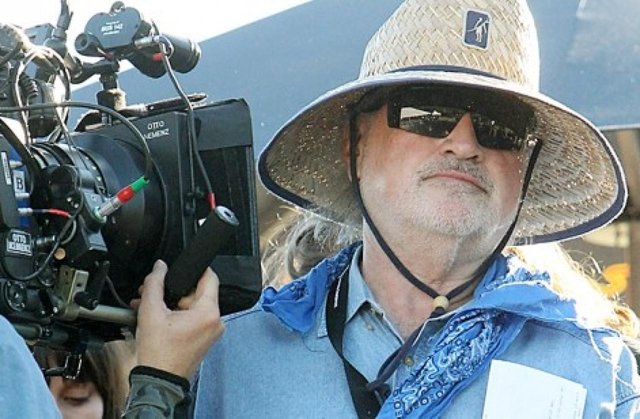
With right discipline and determination, yes. And it is very good for a person to use mockery and belittling to be more determined and focused with what they want to achieve in life. It is a matter of the question "Do you really want to be that someone or no?"
Thanks for sharing your inspiring story here.
Indeed, dear macoolette. And here, int his platform, we have the possibility of becoming authors. As my masters said, if the muses visit your house, they must find you working. Thanks por your inspiring answer.
I learned some things in thisbplatform that I haven't known somewhere else. I may not be a real writer as professional ones but I am learning and that is what matters.
You're welcome.
I think this is the next degree, the next step or level post-facebook. In FB they flatter your ego, with likes and public exposition. They don't pay you, and they aspire you produce contents that call the audience, but an audience for them, not for us the authors, because they don't pay us, but we have to pay them, not like here. Here, who decide if you are author or not is the audience, readers or viewers, with votes, comments and some few money, but is a begining. The cripto currencies will grow in January, and we'll recover our adquisitive power with steem dollars. Meanwhile, we have to consolidate each one as author, and that's the goal. Let's do it, macoolette!
I totally agree with you regarding Facebook which I think is the same case with other social media. I love your positive outlook towards Steem. May your words be from an angel's mouth. 😊🤞👍
Hi matute8029,
Visit curiesteem.com or join the Curie Discord community to learn more.
Congratulations @matute8029! You have completed the following achievement on the Steem blockchain and have been rewarded with new badge(s) :
Click here to view your Board of Honor
If you no longer want to receive notifications, reply to this comment with the word
STOPDo not miss the last post from @steemitboard:
This was such a great read, you carried me along throughout.
It's amazing how you were able to use the mockery, criticism and even rejection you faced as a sort of strength rather than weakness. I do feel that these challenges we often face on our journeys are so we could be strengthened by them. Well, a few of us hardly view or make use of it that way but really, that's just how it should be. And... You probably should thank your friends for being so blunt with you, maybe they were a bit extreme at that point but they did help, yeah?
I do think the combination of a filmmaker and a philosopher is a great one, I feel there should be a bit of depth that should be expected and enjoyed when a script is written by a philosopher. Well, this person has to be a good philosopher and a good filmmaker to make this work out really well. You've got an interesting combination of interests. And I am so glad that one didn't stay in the way of the other, but they complimented each other.😊
That you for this thoughtful post and it was nice to know your background, to learn your interest for filmmaking. I believe many people dream of making a blockbuster movie, it is difficult to get that recipe for that. Sometimes you need to study in order to learn, I believe like everything in this world, if you want to learn you need to study it, because there are people with a great experience and with their guidance that will help you to see everything with different eyes. The question if a philosopher can be a filmmaker, I believe so, but this is the Art to implement it and to be able to transmit the message through the artists to the viewers. That means you must have good artists too. You are right the movies that done by Philosophers will be more complex, because there will be a topic, a conflict and options for resolution of conflicts and at the end, the viewer may be left with unanswered questions. That sometimes make people attracted too.
From philosopher to filmmaker, it was a great leap that Trrence Malick gave, philosophy is something very deep, a league of psychology and spirituality and a deep analysis of the behavior of human beings. Being a filmmaker must be something similar, having to go deep in the creation of a digital work and be so analytical to see every detail that is then shown is the screen, his two passions have a link the unites
Brother, you don't know how happy I am to find this kind of content, I'm a great lover of Mallick's cinema and Emmanuel Lubezki's, for me together they are giants.
Without a doubt, philosophizing from poetry within the cinema is something that Terrence achieves very naturally all his films I like, (I think Badlans is the only one I haven't seen).
Not to mention Bergman with "Persona", strange things are the best things that cinema conceives, to find what transgresses reality.
Ha ha ha I suppose you love his films because he works with Emmanuel Lubezky. Any relationship with your family name? Kidding, as you say, Malick philosophizes naturally with this images. Thankf for your kind comment.
have watched the thin red line and the tree of life.. quite interesting and not too boring to watch but need some concentration because you gonna missed out the messages once you'd interupted by commercial break.. LOL.
so, now you have written more film scripts too? I think I found some interesting movie in Indonesia which created by a philosopher too, not too many audiences but always get the awards.
thanks for sharing your thoughtful article with us @matute8029, wish you continued success and keep Steeming!
Hi matute8029,
This post was nominated by a @curie curator to be featured in an upcoming Author Showcase that will be posted Late Saturday/Early Sunday (U.S. time) on the @curie blog.
NOTE: If you would NOT want us to feature your post in the Author Showcase please reply, email, or DM me on Discord as soon as possible. Any photos or quoted text from your post that we feature will be properly attributed to you as the author.
You can check out our previous Author Showcase to get an idea of what we are doing with these posts.
Thanks for your time and for creating great content.
Akpan (@curie curator)
[email protected]